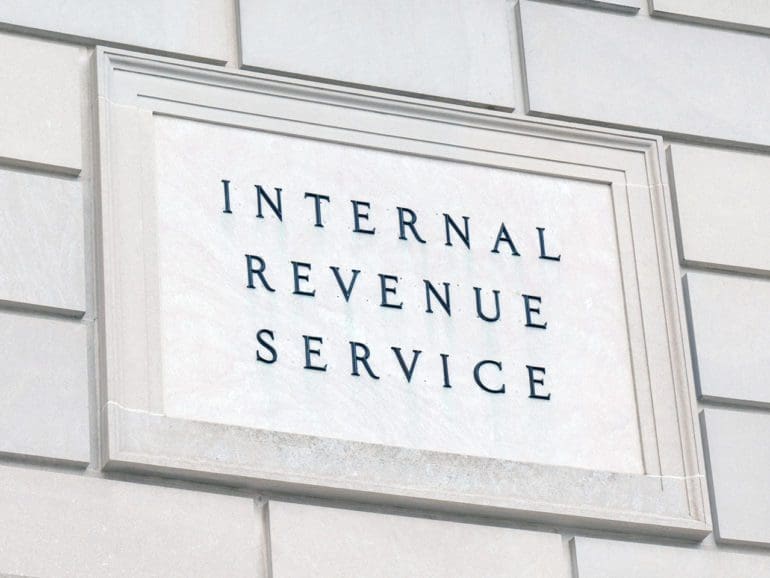Hansen Rada has been working with the IRS for 25 years, and he is using that knowledge to help finance companies make better lending decisions.
Rada is the CEO of Tax Guard, which gives lenders proactive insight into hidden tax risks before someone files liens.

At 23, Rada started a business that helped small companies deal with payroll tax liabilities. Some businesses do not always have cash on hand to immediately fund their responsibilities to employees, suppliers, and the government for many different reasons. And the government usually gets paid last.
Rada saw that a record of these obligations doesn’t exist, at least not when a lender decides on a funding application. He asked different people how they could get a loan when they owed the IRS money, and the answer is they didn’t tell the lender.
Over time Rada learned where to find that information and now uses it to help lenders learn when applicants have these previously hidden liabilities.
“I thought if we came up with a report that would create transparency, lenders would want to see that and pay me money,” Rada said.
“That’s how Tax Guard started. We started 13 years ago and moved into asset-based lending, factoring, and online lending space. We’re now heavily entrenched in SBA lending and slowly moving into different verticals within the credit spectrum.”
Why the IRS is deliberately slow
Rada explained that the public has their beefs with how slow it is to deal with the IRS, but some of those obstacles are by design.
While a company needs to prioritize speed and UX, the IRS focuses on privacy and security. Their information is the gold standard, but it is full of friction by design.
“People always ask me why doesn’t the IRS have an API?” Rada said.
“Keep in mind that friction is a feature, not a bug, with the IRS. In other words, it prevents fraud. If you just backup the IRS system to the Internet, it’s only time before it’s attacked. So they had to put all of these stop measures and preventive issues and create friction so that it doesn’t happen, and if it does, it’s very, very small nature, they could stop it.”
Learning about off-balance sheet liabilities ASAP
Lenders care about cash flow, and with access to IRS data, Tax Guard provides them with the best data, Rada said. They can learn valuable information about an applicant’s health by assessing reporting patterns, with lags in filing deductions raising a red flag.
“The easiest loan to get is not writing a check to the government,” Rada said. “The likelihood is that they are borrowing from the government before anybody knows about it. When I think of the online lenders that work with us, I think about the factoring companies and asset-based lenders; they want to know if these businesses have off-balance sheet liabilities. Do they owe a bunch to the IRS that they’re just not telling us? That’s where we can bring that to the forefront.”
SBA lending has been prominent for the last while. Rada explained that part of the SBA lending process involves providing a tax return transcript that validates claimed income. Usually, that process can take weeks, but Tax Guard obtains the information within a few hours.

Post-pandemic trends to watch for
Rada said that as we begin to emerge from the pandemic, one issue to watch for is how companies address their delayed Social Security obligations. Companies were allowed to defer that portion and then begin to pay it in percentages. Owners are beginning to realize they have to deal with that accrued liability.
Rada said data indicated the economy was definitely in line for a softening before the pandemic’s onset if not headed toward a recession. Withholding taxes, which are a proxy for wages, trended down, and after the pandemic hit, they cratered. It spiked over the past year but is softening again.
“I guess you could say the landscape is kind of slowing down,” Rada said. “We’ll see if that holds throughout the rest of the year, but I get this feeling when we look at the data that you could see a turning point here in the next six months.”
Rada said trucking was vital for a long stretch but is now slowing down. Perhaps that’s supply chain issues, as empty trucks are not on the road.
How Washington put the IRS is in a bind
He sympathizes with the IRS, who’s expected to keep doing more with less. Congress adds stipulations they have to adjust to without increasing their capability, with Rada likening it to a profitable company slicing its AR department. Many people and companies used the stimulus to pay off their tax obligations, and because the IRS is dealing with that backlog, they are not collecting.
“It’s interesting to see these politicians sit there and say we need to collect from the wealthy and collect taxes. You guys aren’t doing anything. The collection has come to a standstill. In terms of enforcing owed taxes, I think that’s been the biggest shocker for me over the last year is (they) can’t.
“It’s like student loan forgiveness. They’re saying, ‘we can’t seem to get to the point of forgiving it, so we’ll just delay the payments forever.’ It seems that we have that with taxes right now.”
Rada said they need to increase collections because it doesn’t happen overnight. In the interim, folks get used to the new normal.
“It is a learned behavior,” he said. “If you owe money to the IRS and you don’t hear from them for a year and a half, do you owe money? I mean, I don’t know.”
Related:
Society is in an exciting position, Rada noted. They can benefit from more robust government data, but individuals are becoming more privacy-conscious and increasingly concerned about sharing their information with others, including governments.
And unless governments see the need to innovate, progress will bottleneck, Rada said.
“When you think about closing loans up the process, if you always knew it took two weeks to get specific information, why bother spending the rest of it up? But now that you can get it, I see these banks trying to put initiatives to get all of this faster. Maybe not in 30 seconds, but if it’s three hours, that’s a huge win.
“But there was no need. It’s like when you look at home mortgages. Their big challenge is that appraisals take 30 days. What do I have to speed up the rest of the process for if I wait for 30 days for that appraisal?”
The situation is improving, with Rada seeing some institutions hoping to replicate the progress from some areas in others. Entire processes are being considered. While we may be talking about the fastest turtle, it’s still an improvement.
A reporting gap exists
Rada said many of the information sources lenders rely on are lacking because they are voluntary sources. No one knows that the small tradesperson isn’t paying their suppliers on time. That makes the IRS data all the more crucial.
“A small business, if they short a local vendor, nobody is reporting that,” Rada said. “So there are inferior metrics on small businesses. I keep going back to the Internal Revenue Service, the gold standard. The trade-off lenders are trying to make, do they want the gold standard?
“So is it good enough to get instant information (from other sources) versus the gold standard the IRS issues that you have to wait a little time to get?”


